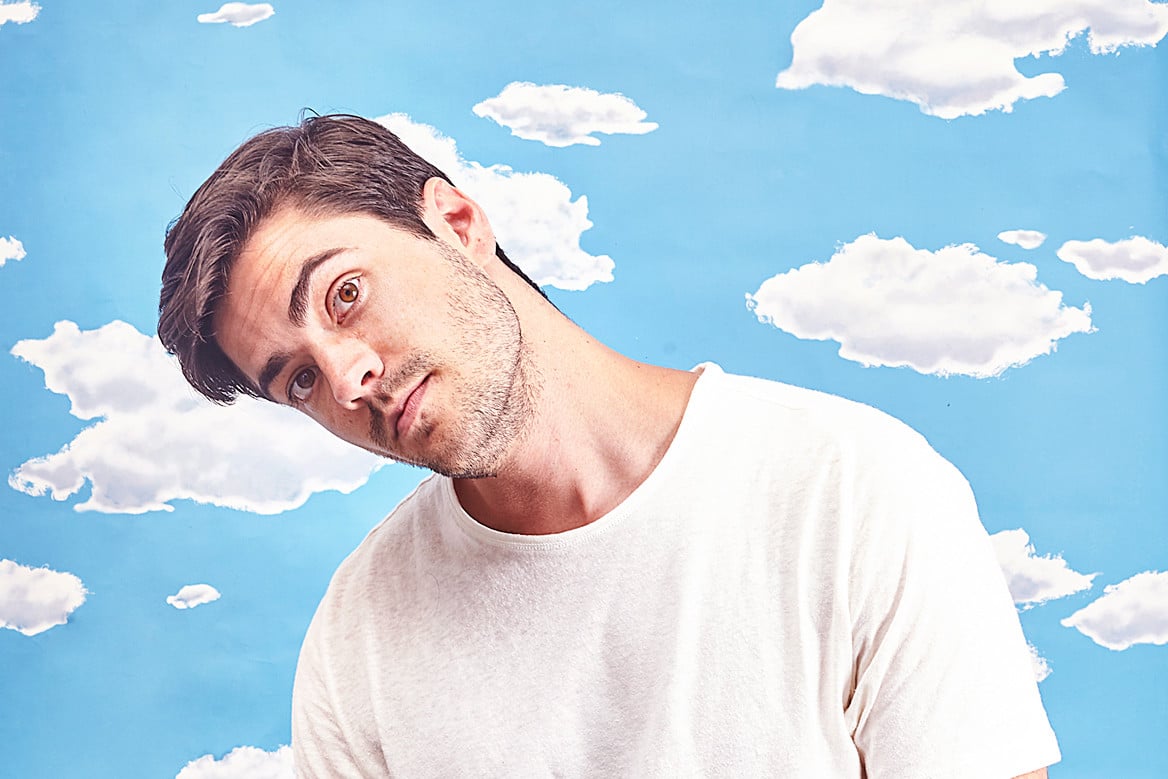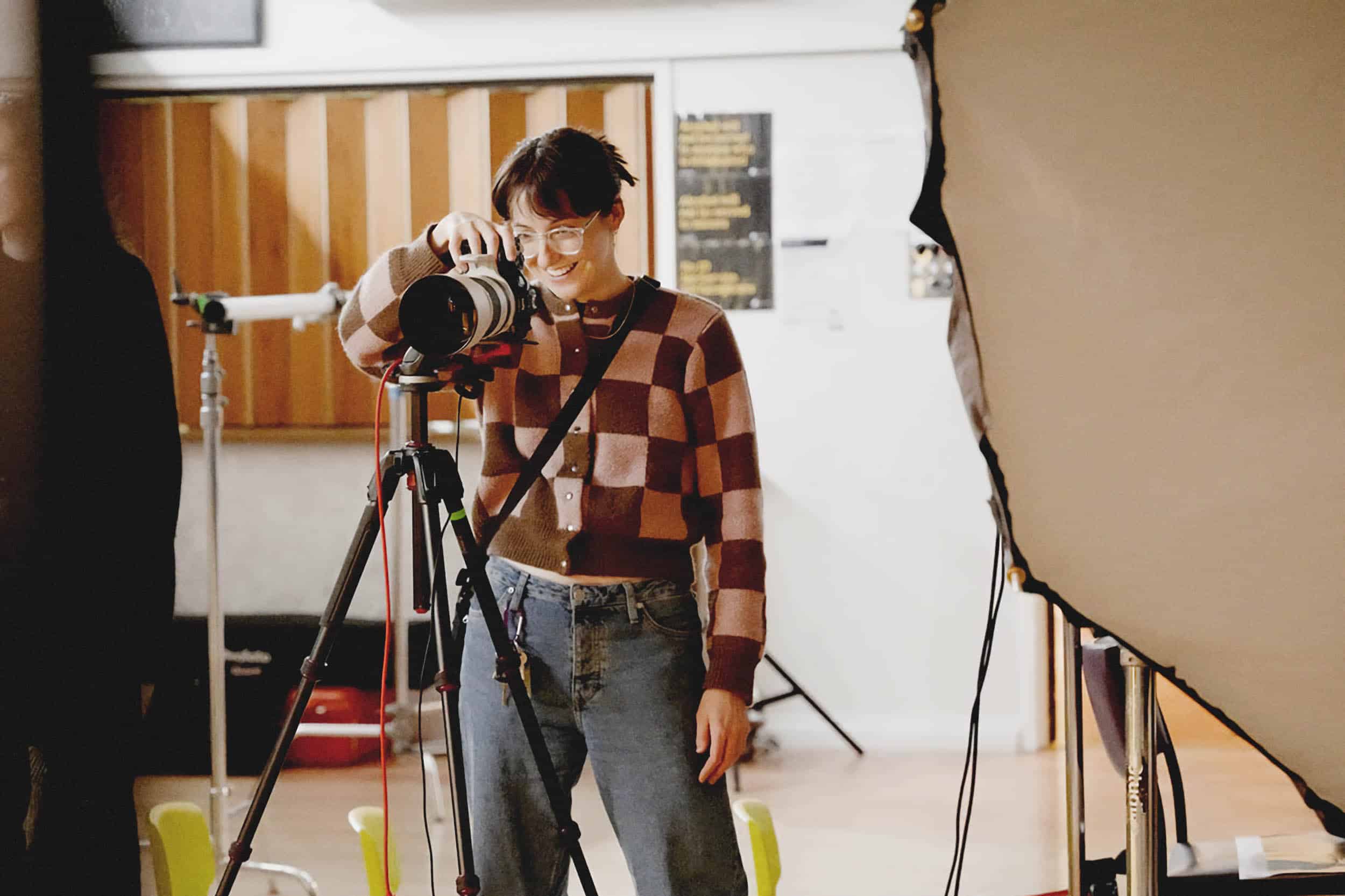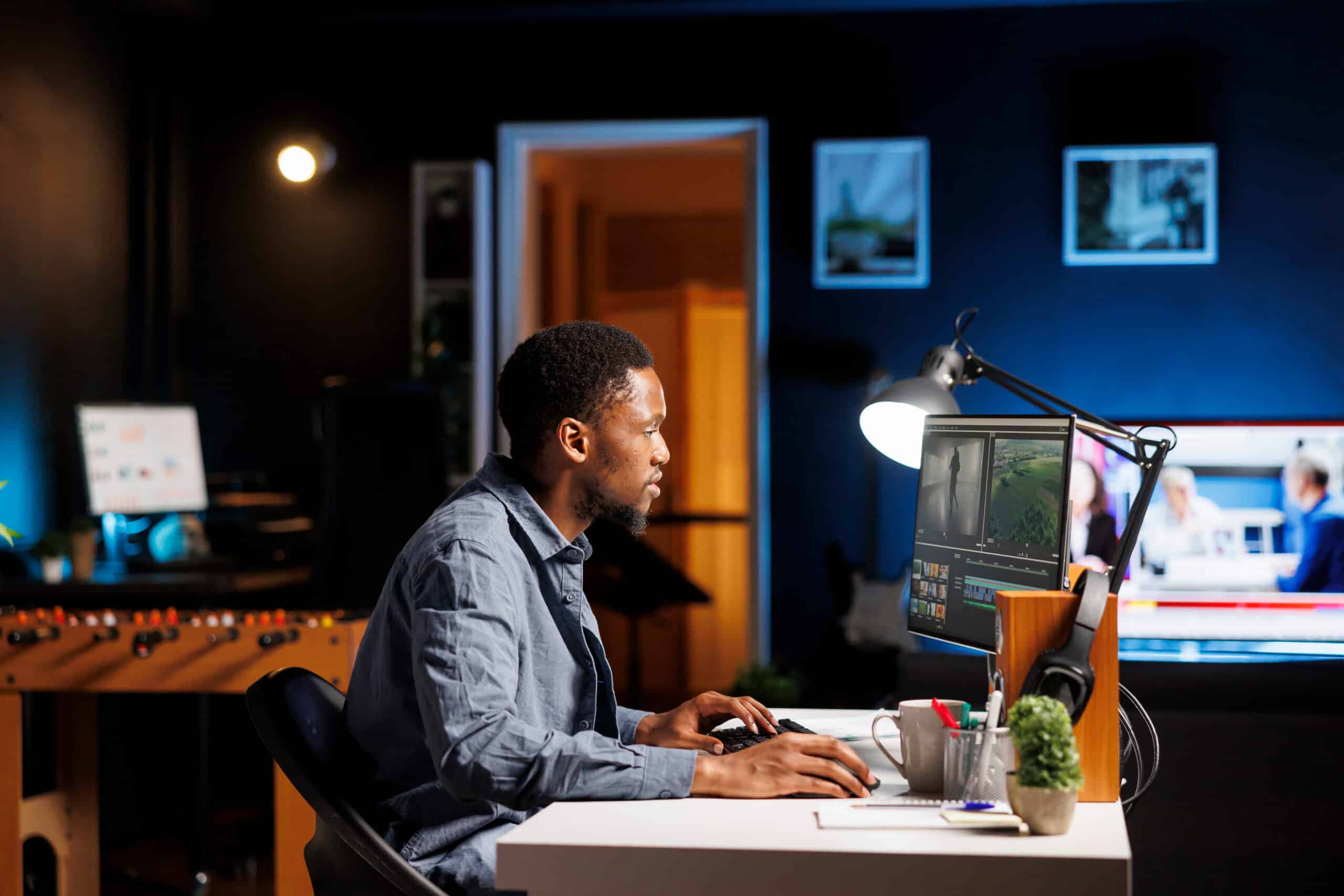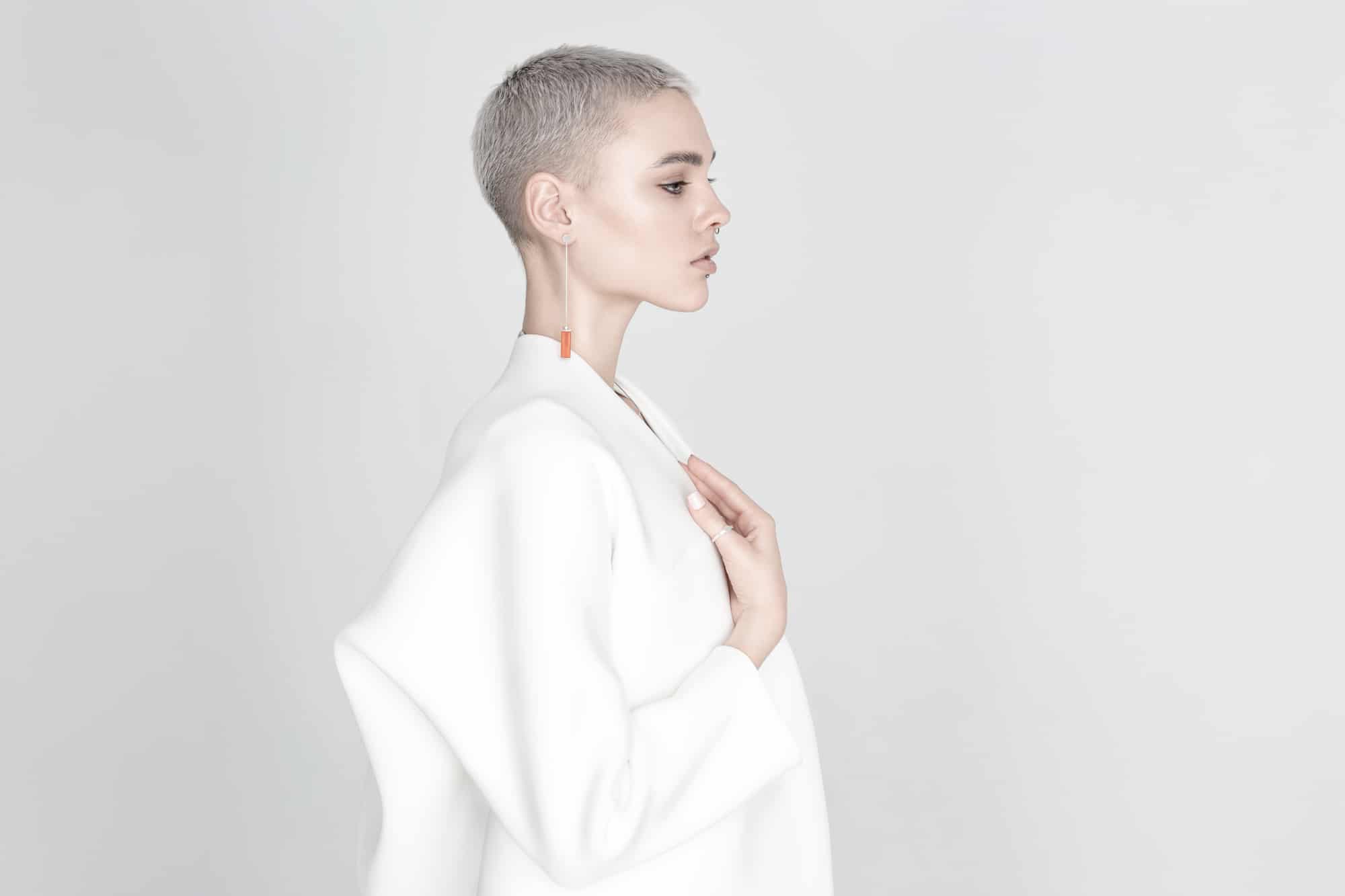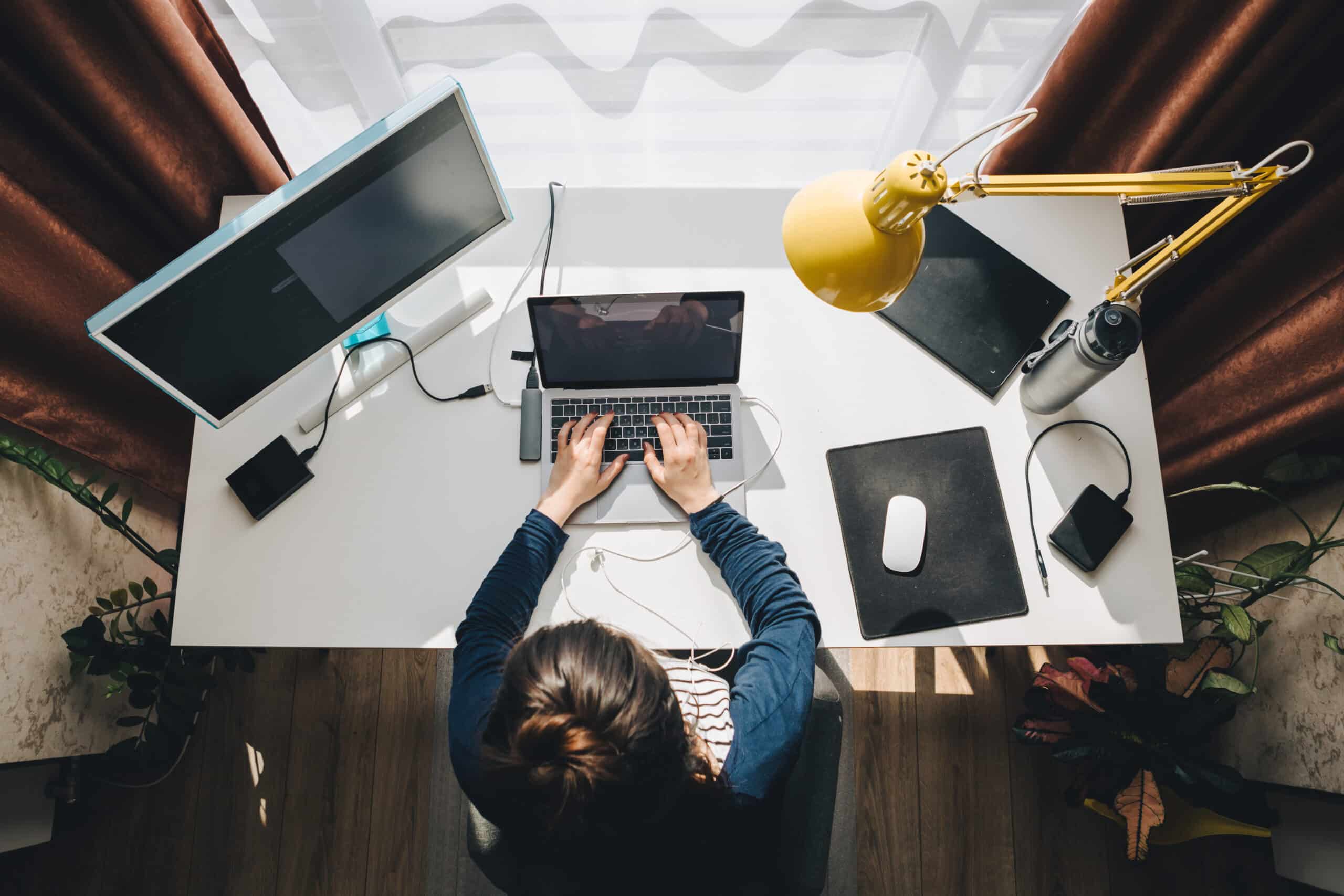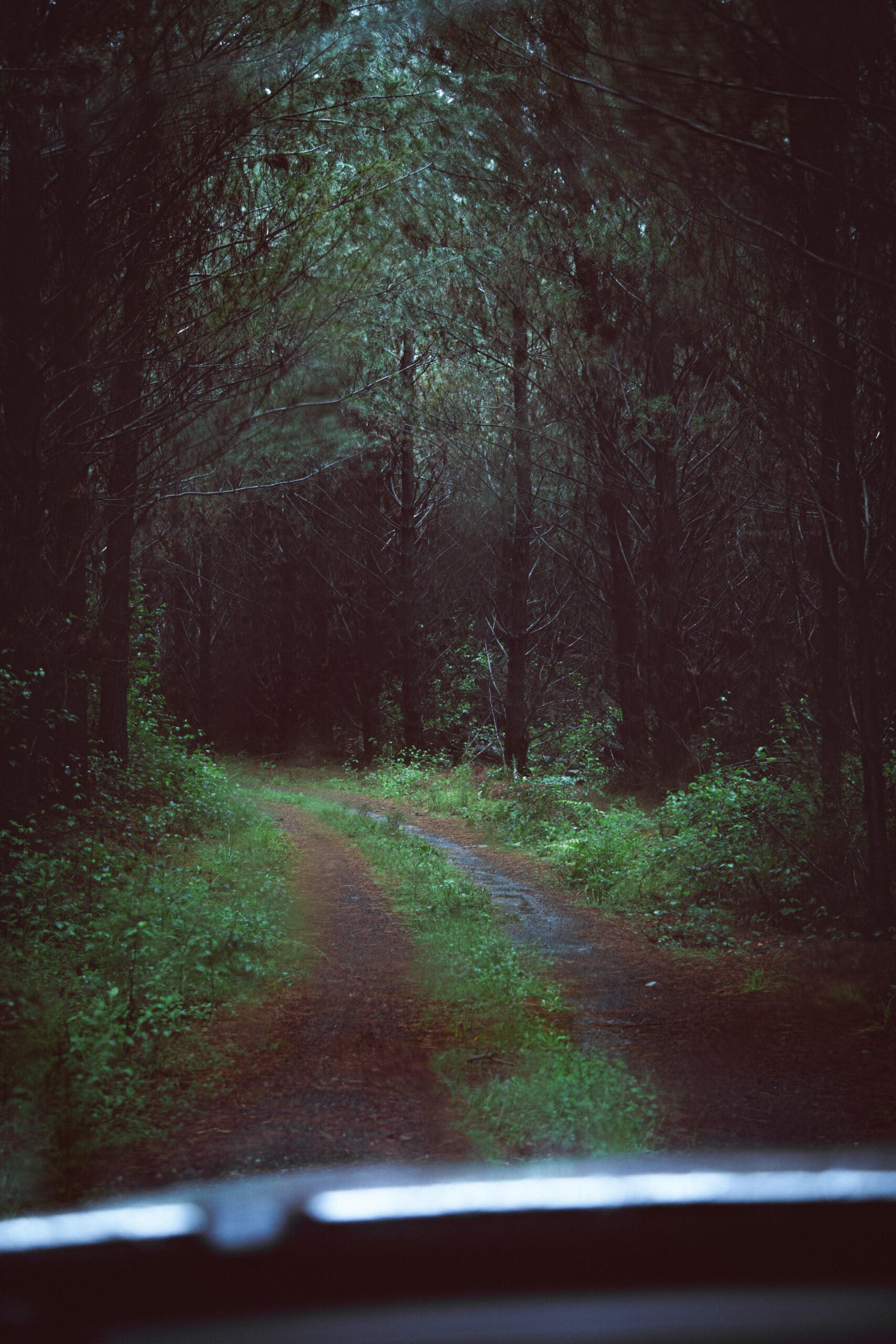Lucky Peach is about food, but it looks like pure art. The print and online publication, founded by Momofuku’s David Chang and former New York Times restaurant critic Peter Meehan, has quickly made a name for itself since launching in 2011. The only thing better than essays on ramen and guide to subpar beers is the eclectic styling of its pages.
Devin Washburn is the art director responsible for Lucky Peach’s hot look. After whipping up some award-winning book and magazine covers, he joined the Lucky Peach team to give it a signature style.
If you’re looking for a publication to feature your illustration, design or photography work, Lucky Peach could be the perfect fit. They regularly publish new work in a wide range of styles. Better yet? Washburn says the he looks at every submission that comes his way.
He’s a self-described “softie” that genuinely loves creativity and working with other artists. If you think art directors are maniacal bullies with a fast finger on the delete button, think again. Washburn is a total peach and proof that hardworking good guys do it better.
We called Washburn at the Lucky Peach office in New York to answer our questions about submitting work, finding time for personal projects and discovering artists on social media.
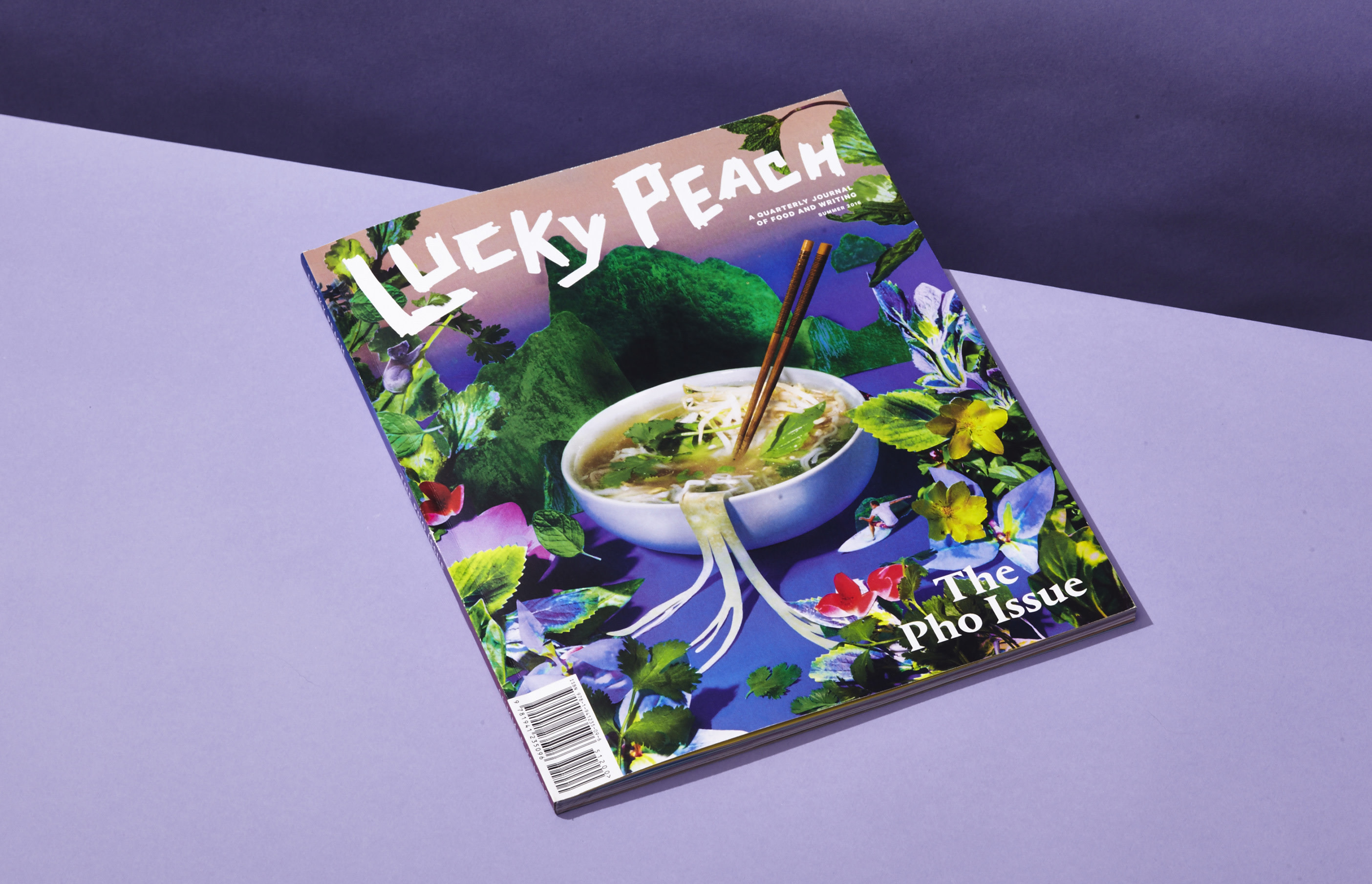
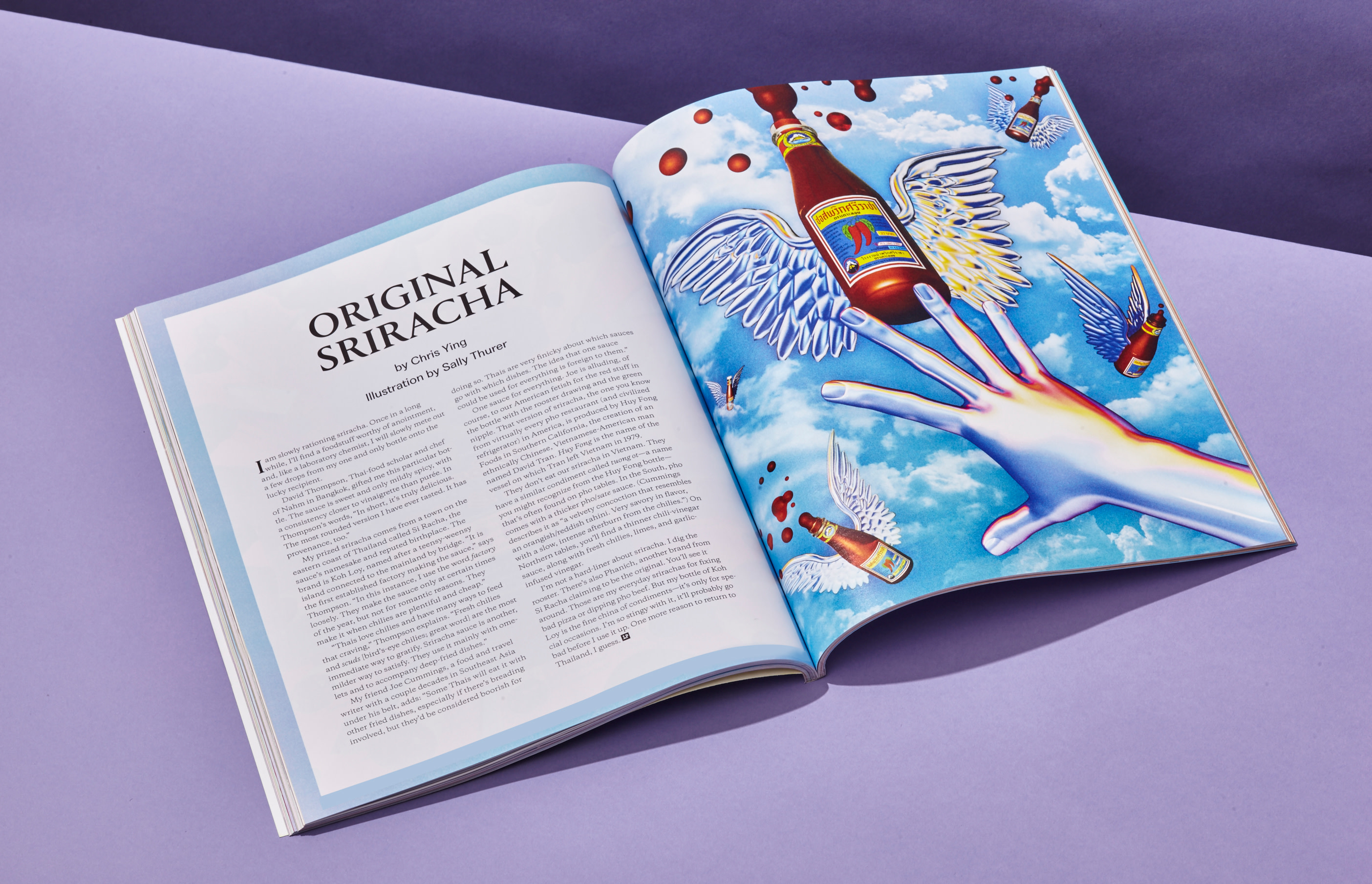
Hi Devin! What exactly do you do at Lucky Peach?
I’m the Art Director here, which means I oversee all the art and design for Lucky Peach. We’re a small magazine—the art department is only me and another designer, Rob Engvall. We work on the magazine, which comes out quarterly, and a website that publishes new content every day. We’re also working on a few cookbooks too.
Most publications don’t have high-quality original visual content, and instead opt for stock images. Why did Lucky Peach decide to invest in new work?
It’s a very conscious decision, and it’s one of the ways we try to stand out from other publications. We have a personality and a point of view—visually and editorially—and commissioning original art for most pieces is a big part of that.
It allows us to infuse our personality into everything. We do some of the website art in house because the turnaround is tighter. That’s fun too, having to come up with a quick, funny concept for each article.
You hire a lot of illustrators. What are some of the challenges of working with illustrators from an art director’s perspective?
I love to work with new illustrators—including people who have never done any professional, editorial work—so sometimes they might not understand the firmness of deadlines or submit the right file size and stuff like that.
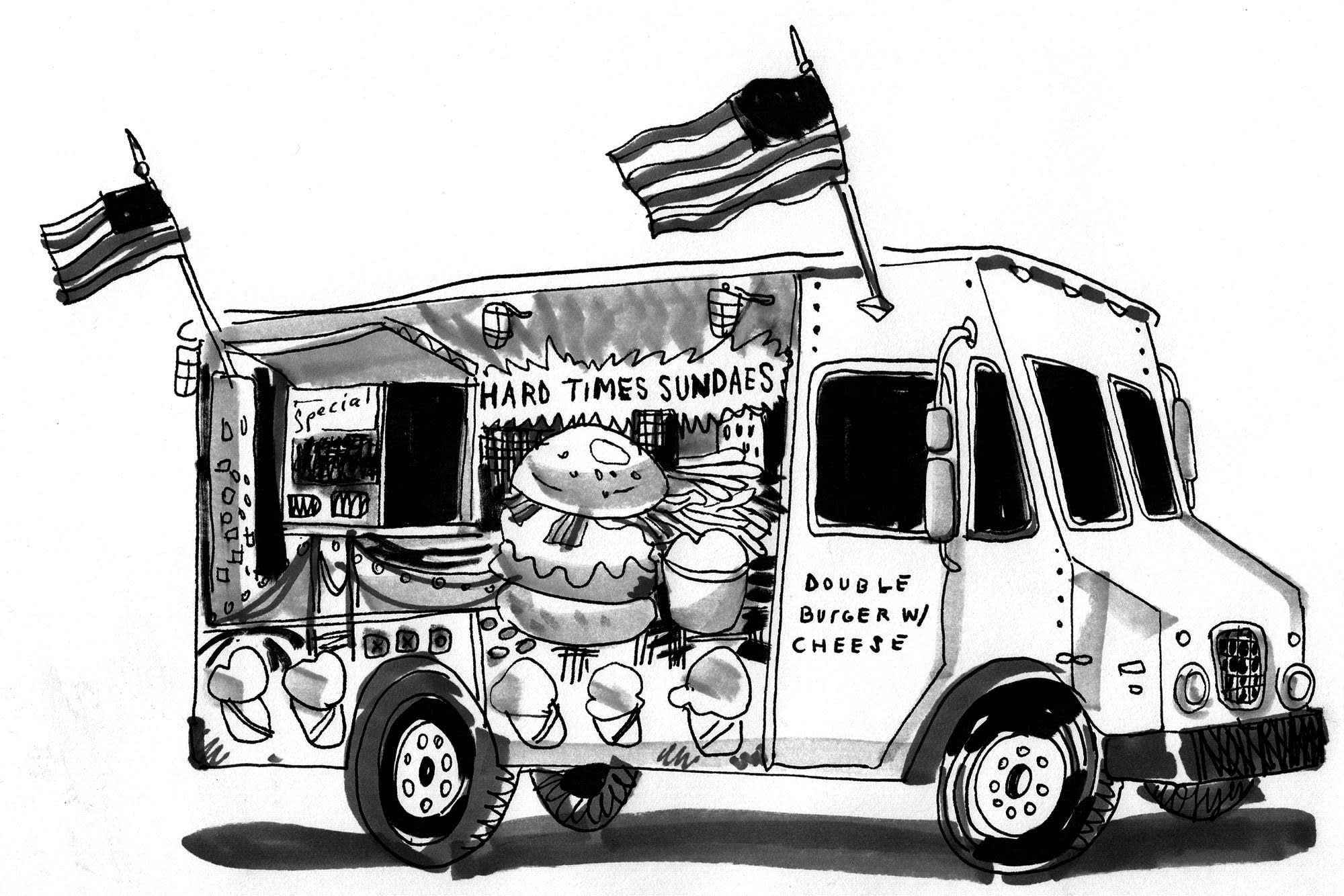
Art by Wolfy Part II for Hard Times Sundaes
Any tips illustrators, designers and photographers pitching you work?
It’s not really how they pitch me. It’s always just about the work. Sometimes people write really heartfelt e-mails but their work just isn’t the style of Lucky Peach. I don’t get to respond to everyone but I do read every email and look at every website. If it’s something that aligns with our style or our vision, then I’ll work with them.
What is that style and vision? For example, if I’m looking at my own work, how do I assess if this is Lucky Peach-able or not?
The aesthetic styles can really vary, but it’s more about the concept. Does the artist have a strong sense of dealing with complicated subject matter and showing it an interesting way? And on top of that: Is it graphic? Is it fun? Is it something that I’ve never seen before?
I look for people who have never done food illustrations or photography because the final outcome is often more surprising than someone who just specializes in food. It’s interesting to find someone who specializes in inanimate objects or really abstract things and see how they interpret a piece about pizza or ramen.
Do you care if someone doesn’t have any previous publishing credits?
No, not at all. I find a lot of people who are students or people on Instagram and I’ll reach out to them. I can tell a magazine or a publication has never approached them so they’re very excited. It’s fun.
Often people who aren’t as established do great work and give it their all, whereas sometimes more established illustrators are juggling a handful of projects at a time.
Would you recommend for emerging illustrators to have a really active Instagram account with all of their stuff on it?
I would. Social media, in general, is invaluable for your career. It’s amazing the amount of work you can get offered. I don’t post a lot of my work on social media but I’m not actively looking for freelance work. But if you are, then it’s definitely one of the best things you can do.
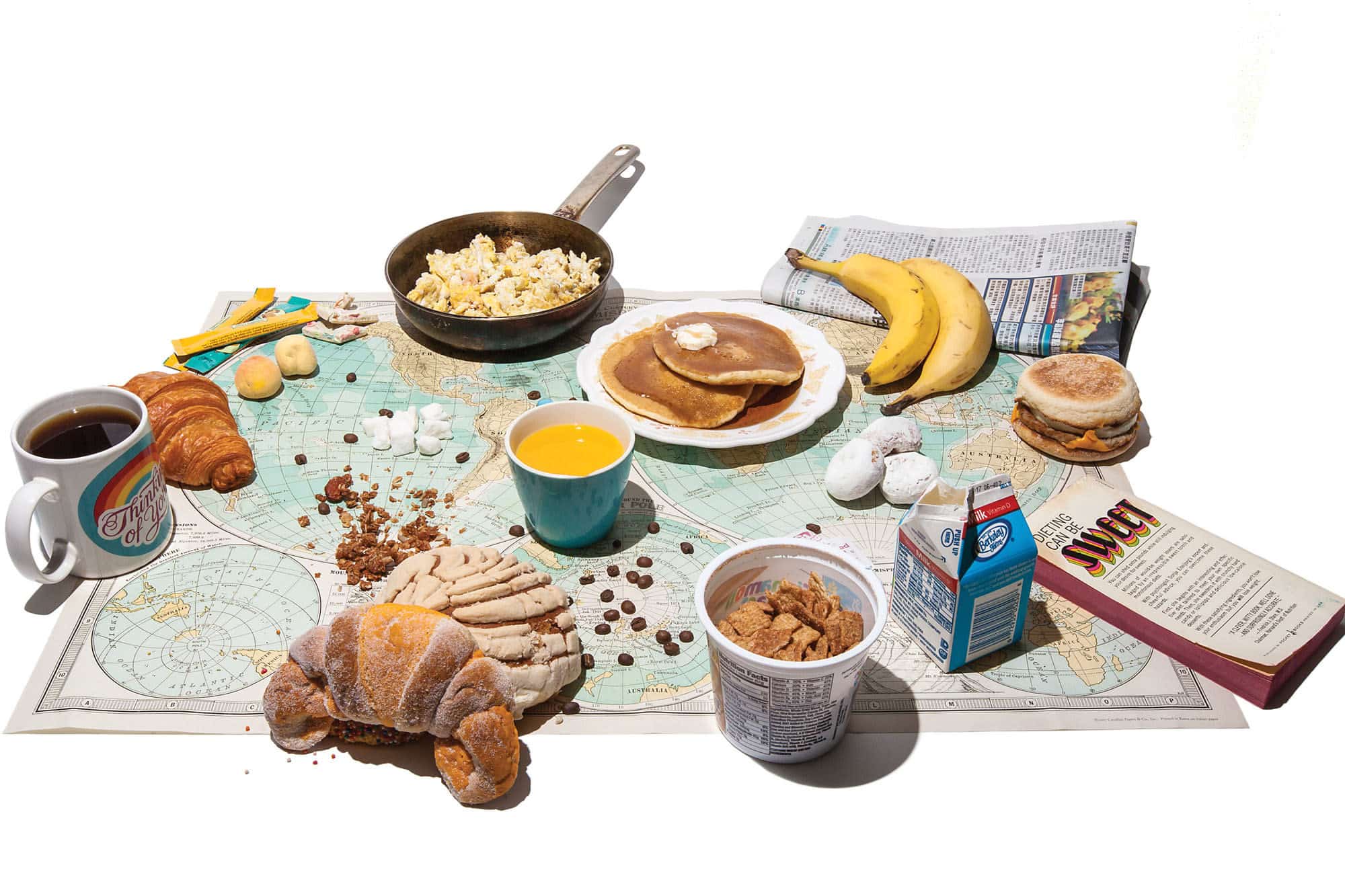
Art by Kelsey McClellan & Carly Jean Andrews for It’s 8 a.m. Somewhere
What’s the mix of talent you’re looking for?
In every issue, I try to get a mix of different photography and illustration styles. I usually try to find a balance of hand-done illustrations, 3D renderings, or paintings, and photography.
What are some other places that you scout people out?
I check websites like It’s Nice That, but then the rest comes naturally. People email me, I find people on Twitter, or just meet people in the scene in New York.
Are there any pitches you’re sick of? Pitches you just don’t want to see anymore of?
I don’t think so. I’m a softie. I just encourage people to do everything they can, and don’t take no for an answer. I’d even encourage people to e-mail me as much as they want. It might not always work, and I might not get back to everyone or ever use them for a project, but it doesn’t hurt to keep sending things. I never mind.
That’s interesting. Do people send a lot of printed stuff? Younger people might not consider sending printed materials, but it could help to get noticed a little bit more.
I get a lot actually. Almost every day I have like ten envelopes on my desk from illustrators, and sometimes it’s a big foldout poster or a little booklet they made. It’s really nice actually.
Sending printed material is a really nice gesture, and I love it, but a nice website can be just as effective.
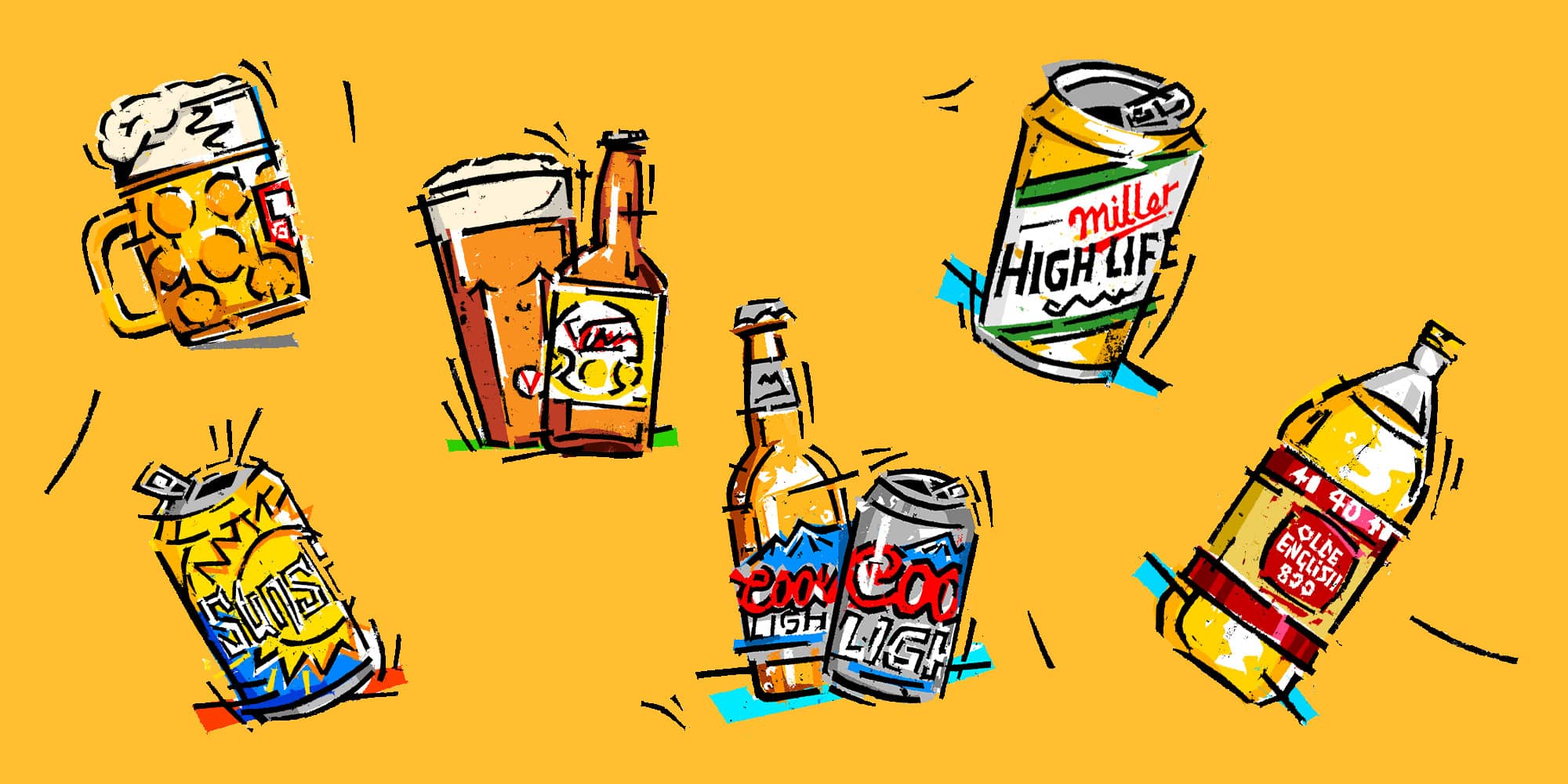
Art by Ryan Gillett for A Guide to Lagers of the World
If you are chosen and super excited that you’re going to featured, what should you be prepared to know about the process of what happens next, like the turnaround time or what’s expected of you?
The turnaround time always varies. I’m super lucky to get to work with such amazing creative people so I try to give the illustrator or the photographer a lot of creative freedom. I want to see what people come up with, as opposed to telling them what to draw or how to shoot. Or if they have a certain concept for the piece, I try to work the layout to fit their concept and not the other way around. The whole process is very collaborative.
Do you get time to work on personal projects?
Yes! I’m constantly working on personal projects. I have a few photo books coming out that I’m excited about. I also teach a class at SVA which really inspires me to do more projects. It’s important because things always inform each other; a little experiment from a personal project could make its way into the magazine, and vice versa.
What’s up next for you at Lucky Peach?
We have a new cookbook coming out called Power Vegetables which was really fun to work on, and our new issue coming out is all about fine dining, and what it means in today’s world. I’m really excited how that one came together.
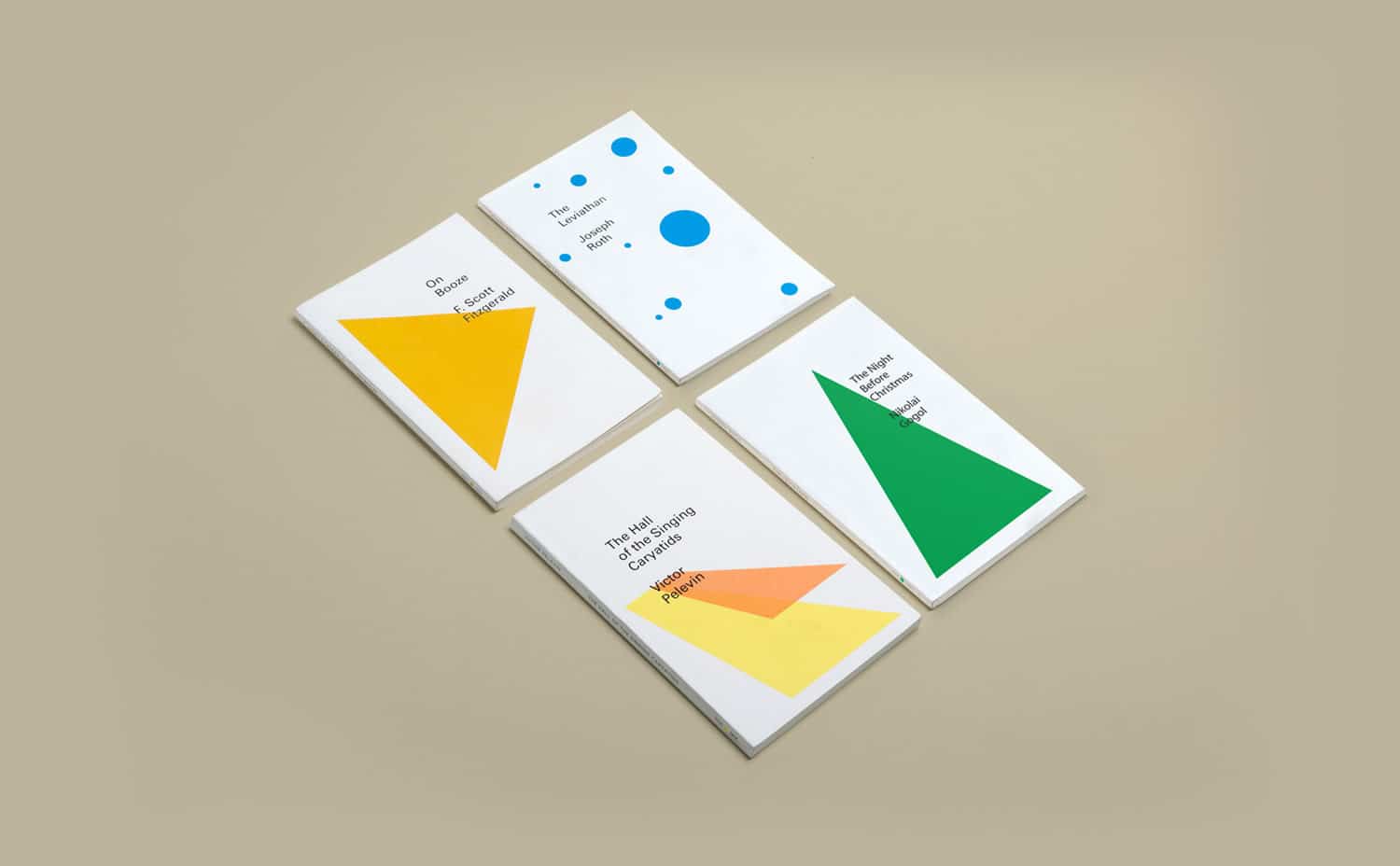
Pearl Series by Devin Washburn, New Directions with Rodrigo Corral
Devin Washburn’s portfolio Portrait by Pete Deevakul, all other images via Lucky Peach
